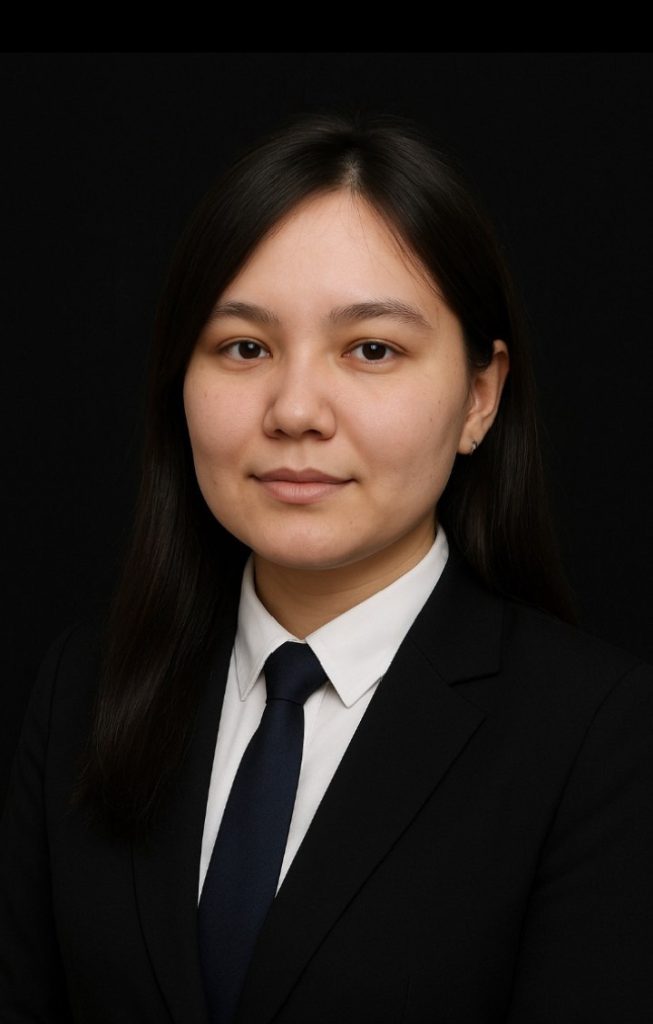
Interactive Methods for Increasing Preschool Children’s Interest in Learning the German Language
Abstract
The article analyzes the role and significance of interactive methods in developing preschool children’s interest in learning the German language. The effectiveness of methods such as games, songs, drawings, multimedia tools, and interactive activities in early language learning is scientifically substantiated. In addition, the paper outlines ways to develop children’s communicative skills through the use of modern educational technologies.
Keywords: German language, preschool education, interactive method, motivation, game technology, early language learning.
INTRODUCTION
In today’s era of globalization, teaching foreign languages from an early age has become one of the strategic priorities of every national education system. Learning foreign languages, particularly German, at an early stage develops children’s intellectual potential, broadens their worldview, and nurtures respect for the culture of other nations. The Law of the Republic of Uzbekistan “On Preschool and School Education” and the “New Uzbekistan – Development Strategy 2030” set forth the task of gradually introducing foreign language teaching into the preschool education system.
Language learning at an early age is considered a natural process. Between the ages of 3 and 6, a child’s speech apparatus, auditory perception, phonemic hearing, and communicative ability are actively developing. During this period, a child can easily acquire not only their native language but also foreign languages. Therefore, to enhance the effectiveness of teaching German in preschool institutions, educators are required to make wide use of interactive methods.
Interactive methods ensure that children actively participate in the learning process, think independently, and enjoy the process of learning. Such an approach strengthens intrinsic motivation, sparks interest in language learning, and develops communication skills.
Therefore, this article explores interactive methods for increasing preschool children’s interest in learning German, their theoretical foundations, and practical application possibilities.
MAIN PART
1. Theoretical foundations of early foreign language learning
Language is one of the most important indicators of human thinking, and learning it at an early age lays the foundation not only for linguistic but also for cognitive development. Psychologists such as L. S. Vygotsky, J. Piaget, and E. Lenneberg have scientifically proven that children’s ability to acquire languages is most active between the ages of 2 and 6. During this stage, children tend to learn through play, songs, movement, and visualization.
Hence, teachers should organize the educational process considering children’s psycholinguistic characteristics. The most effective approach combines visual, auditory, and kinesthetic methods.
The German language, with its pronunciation system and phonetic richness, helps develop children’s articulation and sound culture. For example, pronouncing sounds like “ch”, “sch”, “ei”, “eu” in words helps improve speech development, positively influencing their pronunciation in their native language as well.
2. The content and types of interactive methods
Interactive methods are approaches in which learners actively participate, express their thoughts, and gain experience. In preschool education, the following interactive methods are considered the most effective:
1. Game-based technologies.
Play is the most natural and effective tool for language learning. Through games like “Find the Color,” “Choose the Animal,” or “What is this?”, children reinforce new words and learn to use them in context. For example, short expressions such as Was ist das? – Das ist ein Ball are easy to remember.
2. Teaching through songs and poems. German children’s songs (such as Alle meine Entchen, Guten Morgen!, Zehn kleine Fische) make lessons lively, improve pronunciation, and help develop a sense of rhythm. Repetition in songs aids vocabulary retention.
3. Role play.
Through situational activities such as “At the Store,” “At Home,” or “In the Garden,” children practice real communication scenarios. This method fosters confidence and active participation.
4. Using multimedia and interactive resources.
Modern technologies such as Wordwall, Kahoot, and LearningApps generate great interest among children. With visuals, sounds, videos, and animations, children learn through seeing, hearing, and movement simultaneously.
5. Creating a “language environment.”
Displaying German words, colorful posters, and organizing a “language corner” in the classroom allows children to experience the foreign language naturally.
6. Interactive lessons involving parents.
Activities like “Family Day” or “Language Game Day” engage parents alongside their children. This fosters a positive emotional atmosphere and strengthens children’s motivation.
3. The importance of play and emotional atmosphere
Emotional atmosphere plays a crucial role in language learning. Psychological studies show that when children experience joy, surprise, and excitement, they retain information more effectively. Therefore, using games, humor, and colorful visual materials in German lessons is essential.
For example, during “Let’s Sing Together” activities, children not only hear the words but also accompany them with gestures, which develops their motor skills.
Moreover, a teacher’s positive energy and encouraging words (“Sehr gut!” “Prima!” “Super!”) boost children’s self-confidence. Thus, the teacher not only teaches the language but also nurtures self-esteem and positive emotional development.
4. Practical experiences and observations
Observations conducted in several public and private preschools in Tashkent, Samarkand, and Namangan regions have shown that lessons using interactive methods engage children 30–40% more actively and double their vocabulary acquisition rate.
For instance, during the “Language and Culture Week”, children easily learned expressions such as “Ich bin Anna,” “Ich habe eine Katze.” Through drawing, singing, and role-playing, they actively participated in communication.
Additionally, classrooms with a “Picture Vocabulary Wall” (Bildwörterwand) helped children memorize words more effectively by seeing them daily. Such visual methods strengthen visual memory.
CONCLUSION
In conclusion, increasing preschool children’s interest in learning German requires using interactive methods that suit their age, psychological, and linguistic characteristics. Lessons that integrate play, music, movement, and emotional engagement encourage active learning.
The most effective approaches in teaching German include:
1. Organizing lessons through play and ensuring children’s active participation.
2. Using songs, pictures, and multimedia to make lessons engaging.
3. Creating a “language environment” and involving parents in the learning process.
4. Applying an individual approach and motivation system for each child.
The application of interactive methods enables children to enjoy learning foreign languages, express their thoughts, retain new knowledge, and develop independent learning skills.
Thus, teaching German at an early age through interactive methods is a key factor in improving the quality of preschool education, developing children’s communicative competence, and preparing them for successful future language learning.
REFERENCES
1. Vygotsky, L. S. (1978). Mind in Society: The Development of Higher Psychological Processes. Harvard University Press.
2. Piaget, J. (1962). Play, Dreams and Imitation in Childhood. W. W. Norton & Company.
3. Lenneberg, E. H. (1967). Biological Foundations of Language. Wiley.
4. Cameron, L. (2001). Teaching Languages to Young Learners. Cambridge University Press.
5. Brewster, J., Ellis, G., & Girard, D. (2002). The Primary English Teacher’s Guide. Pearson Education.
6. Pinter, A. (2017). Teaching Young Language Learners. Oxford University Press.
7. Harmer, J. (2015). The Practice of English Language Teaching (5th ed.). Pearson Education.
8. Wright, A., Betteridge, D., & Buckby, M. (2006). Games for Language Learning (3rd ed.). Cambridge University Press.
9. Rixon, S. (2013). British Council Survey of Policy and Practice in Primary English Language Teaching Worldwide. British Council.
10. Ellis, R., & Shintani, N. (2014). Exploring Language Pedagogy through Second Language Acquisition Research. Routledge.
Nilufar Mo‘ydinova was born in Qo‘shtepa district, Fergana region, Republic of Uzbekistan. A graduate of the Uzbekistan State University of World Languages, she works as a manager at “Fair Print” Typography Service. Her articles have appeared in Bekajon, Kenya Times, The Diaspora Times Global, and Synchaos. Member of the International Writers’ Association of Argentina (Grupo de Trabajo de Escritores Internacionales – Argentina), holder of international certificates, Global Ambassador for Peace, and participant in international anthologies and conferences.






